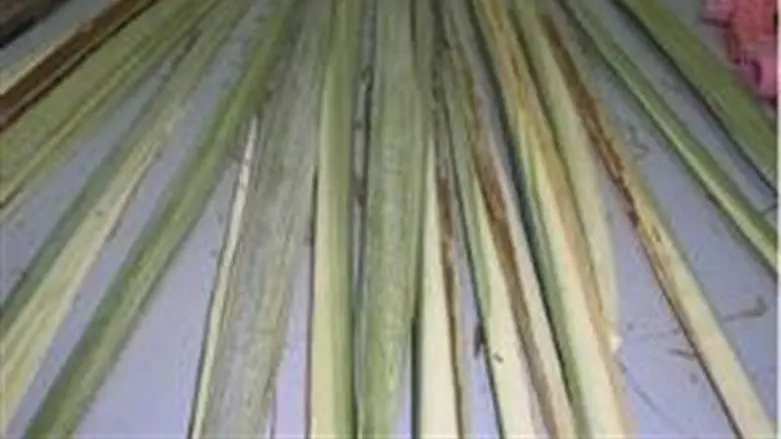
Notices posted in Hareidi neighborhoods in Jerusalem and Bnei Brak call on prospective buyers of lulavim (palm fronds) for use on the Sukkot holiday to avoid buying merchandise grown in Gaza and Jericho – the “Kassam Lulavim,” as the notices call them.
Millions of lulavim are sold in the weeks before Sukkot, which begins Wednesday evening – with the majority of sales coming during the days between Yom Kippur and Sukkot. While many lulavim are grown in Israel, agricultural officials allow the import of inspected lulavim to ensure that there are no shortages. For the past several decades, most of those imported lulavim have come from Sinai, where palm trees abound. But this year, in the wake of the unrest following the fall of Hosni Mubarak, Egypt has banned the export of lulavim to Israel.
In order to ensure a steady supply, the government has authorized the import of lulavim from Jordan. But media reports Tuesday said that many of the lulavim that importers claim they are bringing in from Jordan were actually grown in Palestinian Authority-controlled areas in Judea and Samaria – mostly in the Jericho area – as well as in Gaza and Sinai. According to the reports, merchandise from Jericho is taken into Jordan and then “exported” to Israel, while importers paid bribes to customs agents to authorize the imports from Sinai and Gaza.
Organizers of the campaign against Arab-sourced lulavim say that purchasing merchandise grown in Sinai, Gaza, and Jericho helps Israel's enemies, especially Hamas. “We call on the public not to fulfill the commandment of using a lulav by committing the sin of strengthening Hamas,” posters and notices in Jerusalem and Bnei Brak say.
Moshe Neiman, the organizer of the group calling for the boycott, said that there were plenty of lulavim grown in Israel by Jewish growers to choose from. “We plan to increase support for Jewish growers next year to ensure that they will be able to supply lulavim to all who need them,” Neiman said.